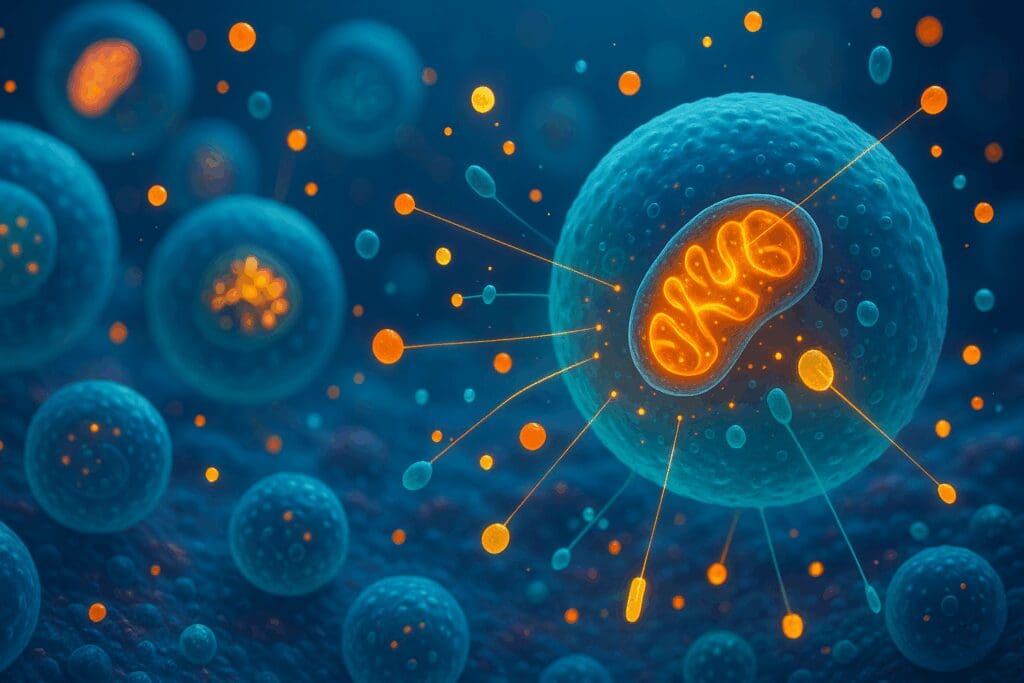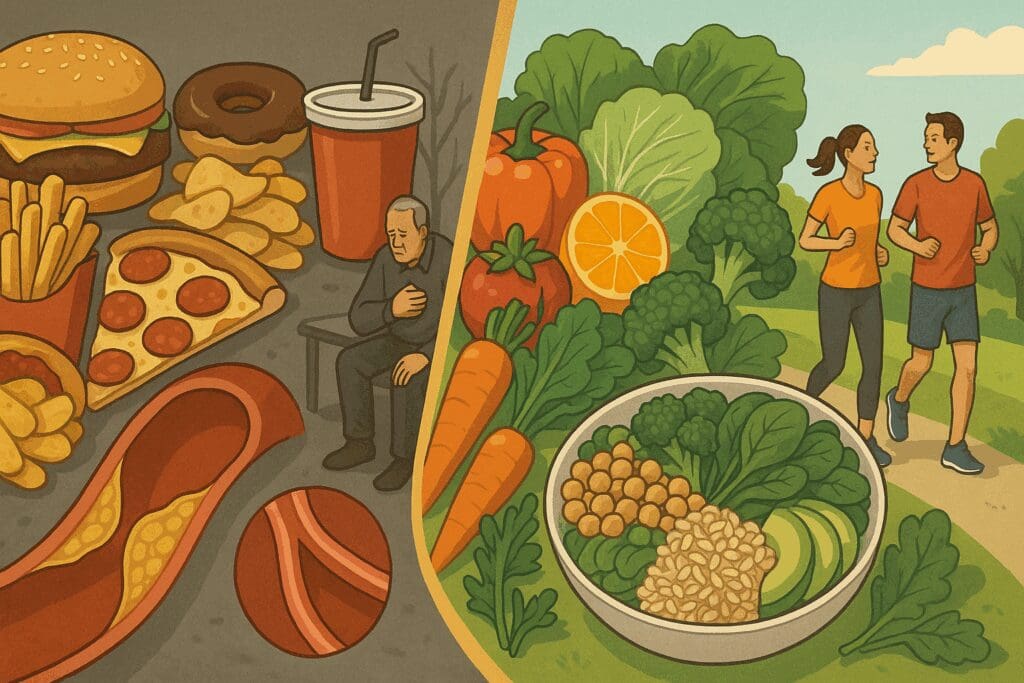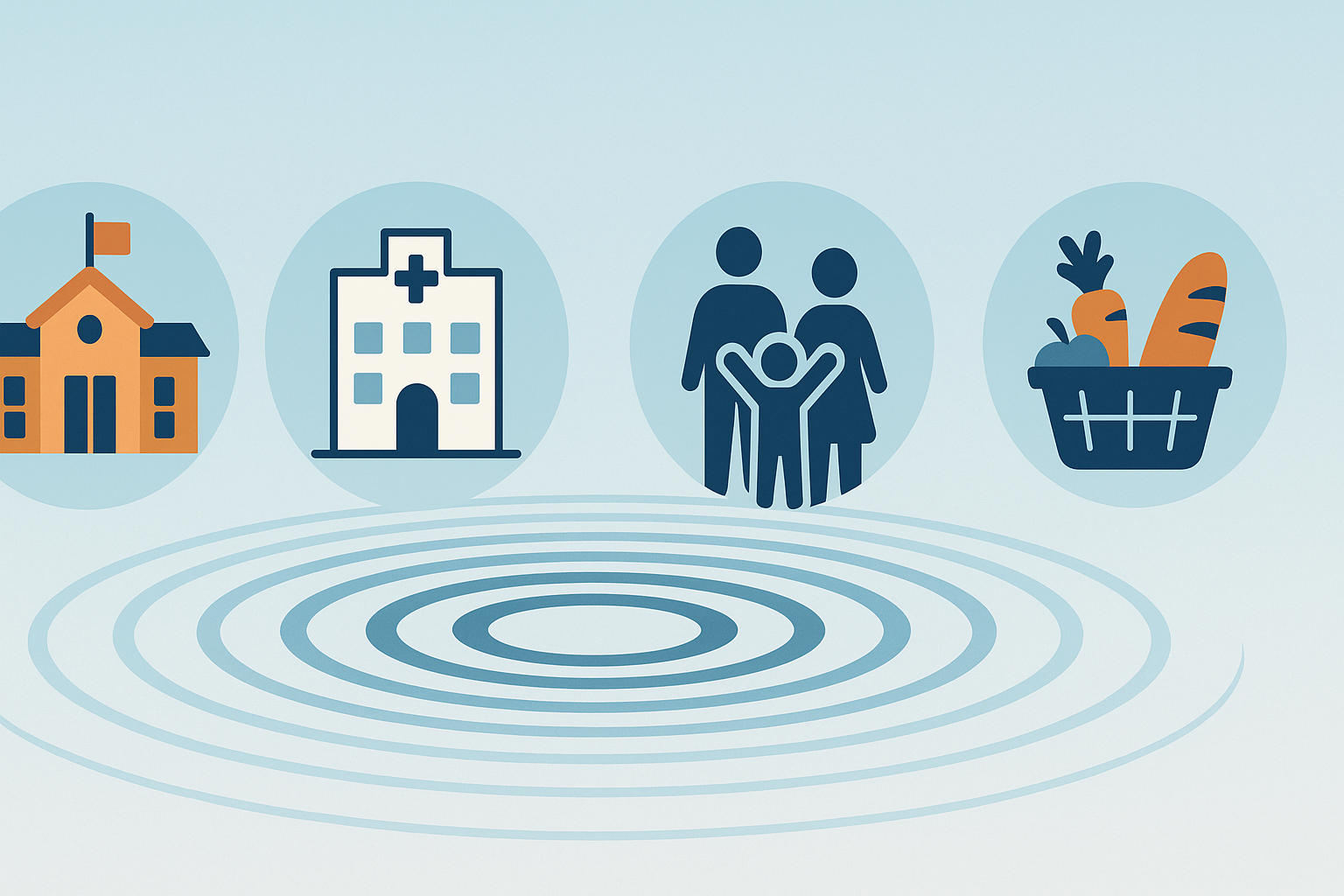Introduction: Building the Foundation of Lifelong Wellness
In an age of accelerating medical advancements and wellness trends, one enduring truth remains clear: nutrition is the cornerstone of lasting health and vitality. While there are countless debates about dietary styles—vegan versus keto, intermittent fasting versus small frequent meals—what transcends these distinctions is the underlying principle that nutrition fuels the body and mind. Understanding why is nutrition important means recognizing its role not only in disease prevention but also in optimizing energy, enhancing mood, supporting cognition, and sustaining cellular renewal throughout every stage of life.
At its core, good nutrition is the strategic provision of essential nutrients the body requires to maintain physiological equilibrium. These nutrients—carbohydrates, proteins, fats, vitamins, minerals, and water—serve distinct yet interconnected functions, enabling everything from digestion and immune defense to tissue repair and neurological function. The body is a dynamic system that constantly regenerates and adapts. Proper nutrition ensures that these processes occur with efficiency, stability, and resilience. Simply put, why is nutrition important becomes a question of whether we are giving our bodies the materials they need to build, sustain, and evolve.
This article delves into the biological, psychological, and practical dimensions of nutrition’s impact. We will explore the health benefits of eating healthy, examine what it means to have a well-balanced diet, and analyze the lifelong effects of nutritional choices. From youth to old age, from cellular metabolism to mood stability, every facet of human functioning is shaped by dietary quality. To eat well is not merely to prevent disease—it is to invest in vitality, performance, and the ability to live a fully realized life.
You may also like: 10 Essential Nutrition Rules to Follow for a Healthy Diet for Women in 20s

Why Is Nutrition Important for Cellular Health and Repair?
To appreciate why is nutrition important, we must begin at the cellular level. Every cell in the human body—from neurons to muscle fibers—requires a specific set of nutrients to function, divide, and recover. These nutrients fuel mitochondrial energy production, guide genetic expression, stabilize membranes, and support intracellular communication. Micronutrients like zinc, selenium, and vitamin C play critical roles in antioxidant defense and DNA synthesis, while macronutrients such as proteins provide the building blocks for enzymes and structural components.
The regenerative power of nutrition is particularly evident in systems that undergo rapid turnover, such as the skin, gastrointestinal lining, and blood cells. Without adequate nutrients, these systems cannot renew properly, leading to fatigue, impaired immunity, slower wound healing, and susceptibility to illness. For example, iron deficiency impairs hemoglobin synthesis, diminishing oxygen delivery to tissues and causing symptoms such as lethargy and poor concentration. Vitamin A deficiency can lead to impaired epithelial barriers, increasing infection risk.
Moreover, essential fatty acids, such as omega-3s, support the fluidity of cell membranes and the resolution of inflammation. These are especially crucial for brain health, where neuronal communication and plasticity depend on membrane dynamics. The benefits of eating healthy thus include more than visible changes like weight management—they encompass fundamental shifts in how effectively our cells age, recover, and interact.
In short, the microscopic machinery of life is nourished or neglected based on dietary choices. The body cannot synthesize all it needs; many nutrients must come from food. This alone underscores why is nutrition important not just for appearance or energy, but for survival and cellular integrity itself.

Why Is Nutrition Important for Energy, Focus, and Mental Clarity?
While energy is often associated with caffeine or sleep, its true origin lies in food. Nutrition provides the substrates—glucose, amino acids, fatty acids—that the body metabolizes into usable energy (ATP). Consuming balanced meals that include complex carbohydrates, healthy fats, and adequate protein helps maintain blood sugar levels, reduce energy crashes, and stabilize mood throughout the day. Understanding why is it important to eat healthy also means recognizing that erratic eating patterns, excess sugar, or nutrient-poor meals can lead to fatigue, irritability, and reduced mental performance.
The brain, which consumes approximately 20% of the body’s energy at rest, is acutely sensitive to nutritional fluctuations. Neurotransmitters like serotonin, dopamine, and acetylcholine are synthesized from dietary precursors such as tryptophan, tyrosine, and choline. A deficiency in these nutrients can impair communication between brain cells, resulting in low motivation, poor memory, or depressive symptoms. B-vitamins, particularly B6, B12, and folate, are vital for methylation—a biochemical process involved in neurotransmitter synthesis, DNA repair, and detoxification.
Complex carbohydrates like oats, legumes, and sweet potatoes offer a slow, sustained release of glucose, supporting extended focus and satiety. In contrast, processed carbs create quick spikes and crashes in blood sugar, which may hinder productivity and mental stamina. The good diet benefits extend far beyond physical fitness; they include sharper cognition, enhanced creativity, and emotional resilience.
In professional settings or academic environments where sustained attention and adaptability are essential, food becomes a cognitive tool. Those who prioritize whole foods, hydration, and regular meal timing often experience a tangible advantage in performance. Recognizing why is nutrition important is thus integral not just to physical health but to psychological endurance and intellectual growth.

Good Nutrition and the Prevention of Chronic Disease
One of the most widely researched and universally accepted health benefits of eating healthy is the prevention of chronic illness. Diseases like type 2 diabetes, cardiovascular disease, hypertension, certain cancers, and neurodegenerative disorders have all been strongly linked to dietary patterns. This relationship is not just correlational but causal—nutritional interventions have been shown to reverse or mitigate many of these conditions.
High-sugar diets and excessive intake of trans fats are associated with systemic inflammation and insulin resistance, setting the stage for metabolic syndrome. Conversely, diets rich in whole grains, nuts, seeds, fish, and fresh produce can lower inflammation markers, improve lipid profiles, and support vascular elasticity. The Mediterranean diet, for instance, has consistently demonstrated cardiovascular benefits, including reduced risk of stroke and heart attack.
Antioxidant-rich foods like berries, dark leafy greens, and cruciferous vegetables provide phytochemicals that neutralize free radicals—unstable molecules that damage cells and contribute to aging and disease. Fiber, found abundantly in legumes, fruits, and vegetables, supports gut health by feeding beneficial bacteria and lowering cholesterol. These interconnected benefits underscore why is a healthy diet important across a wide spectrum of health outcomes.
Even in cancer prevention, nutrition plays a crucial role. Certain dietary compounds, such as sulforaphane in broccoli or lycopene in tomatoes, exhibit anti-carcinogenic properties. Fiber-rich diets are also associated with reduced risk of colorectal cancer. Though diet alone cannot eliminate risk, it can serve as a powerful modifier of genetic predispositions and environmental exposures.
By understanding why is it important to have good nutrition, individuals gain agency over their long-term health trajectory. Diet becomes not just a daily habit, but a preventative intervention—a medicine that acts slowly and cumulatively, shaping the body’s capacity to resist disease over decades.

Why Is Nutrition Important in Childhood and Adolescence?
Nutrition during early life stages lays the physiological and psychological blueprint for the future. The period from conception to adolescence is characterized by rapid growth, hormonal shifts, and neurodevelopmental changes. Adequate intake of nutrients like calcium, iron, protein, omega-3 fatty acids, and vitamins A, D, and E is essential to support these processes. Failing to meet these needs can result in growth stunting, learning delays, behavioral issues, and compromised immune function.
For infants and toddlers, breast milk or fortified formula provides tailored nutrition, but as solid foods are introduced, the challenge becomes ensuring diversity and nutrient density. Toddlers require energy-dense, high-quality foods that are palatable and developmentally appropriate. Iron-rich sources are particularly important, as deficiency can impair cognitive development during critical brain formation windows.
School-aged children and teenagers need increased energy and protein to support musculoskeletal development and puberty. This is also a time when food choices begin to be influenced by peers, media, and autonomy, which can lead to erratic eating behaviors or excessive consumption of processed snacks. Teaching children why is it important to eat healthy at this stage fosters lifelong habits and empowers them to make informed decisions.
The importance of nutrition in adolescence extends beyond physical growth. Academic performance, emotional regulation, and mental health are closely tied to diet quality. Nutritional deficiencies—such as insufficient zinc, magnesium, or B vitamins—can affect mood stability and sleep quality, compounding the emotional turbulence of teenage years. Additionally, adequate intake of calcium and vitamin D during adolescence is crucial for achieving peak bone mass, which helps prevent osteoporosis later in life.
Families, educators, and health professionals all play a role in shaping early nutritional habits. By incorporating meals that reflect balance, variety, and cultural sensitivity, they model what it means to have a well-balanced diet and set a positive precedent for the next generation.

Why Is Nutrition Important for Healthy Aging and Longevity?
As we move into the later decades of life, the importance of nutrition becomes even more pronounced. The body’s ability to absorb and utilize nutrients diminishes with age, often due to physiological changes like reduced stomach acid, altered hormone levels, or diminished appetite. These shifts make nutrient density—not just calorie content—paramount for supporting health, energy, and independence in older adults. Knowing why is nutrition important during aging can significantly impact the quality and duration of life.
Aging brings increased risk for chronic diseases, muscle loss (sarcopenia), bone thinning (osteopenia or osteoporosis), cognitive decline, and immune suppression. Nutritional strategies can slow these processes and, in many cases, reverse or mitigate them. Adequate protein intake helps preserve lean muscle mass, which supports mobility and reduces fall risk. Calcium and vitamin D are essential for bone integrity, while antioxidants like vitamins C and E protect cells from oxidative damage.
Diets rich in polyphenols, such as those found in dark-colored fruits, green tea, and spices like turmeric, have shown protective effects on cognitive function and inflammation. Additionally, omega-3 fatty acids from fatty fish or flaxseed may reduce the progression of Alzheimer’s and other neurodegenerative conditions. The good diet benefits in aging extend beyond disease prevention—they enhance clarity, independence, and overall enjoyment of life.
Hydration is another often-overlooked component of elder nutrition. As the thirst response blunts with age, dehydration becomes a risk even in the absence of overt symptoms. Adequate fluid intake is essential for digestion, circulation, and cognitive function, especially in warm climates or during physical exertion.
Recognizing why is it important to have good nutrition in later life reframes aging as a phase of continued vitality, not inevitable decline. Through smart nutritional choices, older adults can experience greater autonomy, social engagement, and resilience against both physical and mental challenges.

Describe What It Means to Have a Well Balanced Diet in Today’s Modern World
The phrase “balanced diet” is often used in wellness conversations, but few people fully grasp its breadth. To describe what it means to have a well balanced diet is to embrace a nutrition model that delivers all essential nutrients in appropriate proportions while avoiding both excess and deficiency. It also involves mindful eating, cultural awareness, and sustainability—dimensions increasingly relevant in the modern era.
A well-balanced diet includes a mix of macronutrients (carbohydrates, proteins, fats) and a broad spectrum of micronutrients (vitamins and minerals). Each food group contributes something unique: fruits and vegetables provide fiber and antioxidants; whole grains offer B vitamins and slow-burning energy; lean proteins support tissue repair; and healthy fats regulate hormones and transport fat-soluble vitamins.
But balance also considers timing and variety. Eating at regular intervals helps stabilize blood sugar and hormones. Rotating food sources ensures exposure to different nutrients and minimizes dietary monotony or allergen sensitivity. Including fermented foods, such as yogurt or kimchi, supports gut microbiota health, which in turn influences immune function and mood regulation.
In the context of modern challenges—such as processed food overexposure, economic inequality, and environmental degradation—balance also implies ethical and practical choices. Supporting local produce, reducing food waste, and consuming less ultra-processed fare are all components of balanced eating. These decisions not only promote personal wellness but contribute to planetary health.
Thus, when we describe what it means to have a well balanced diet, it is not simply about portion control or food pyramids. It is about cultivating a thoughtful, nourishing, and adaptive relationship with food that serves the whole person and the world they inhabit.
The Benefits of Eating Healthy Across Life’s Many Stages
The benefits of eating healthy unfold in layers across one’s life—enhancing not only health markers but emotional wellbeing, appearance, productivity, and even social connectedness. Food influences mood through gut-brain signaling, affects skin clarity via inflammation control, and improves sleep quality through stable blood sugar and melatonin precursors. In children, good nutrition sets the groundwork for cognitive and behavioral stability. In adults, it sustains career performance, stamina, and hormonal balance. And in elders, it preserves dignity and prolongs independence.
Another often-unspoken benefit is food’s role in emotional regulation. Nutrient-dense meals can reduce anxiety and depressive symptoms, as emerging research into the field of nutritional psychiatry now confirms. Omega-3s, magnesium, B vitamins, and antioxidants contribute to neurological stability and synaptic function. On the flip side, sugar-heavy, ultra-processed diets are increasingly linked to depression, brain fog, and fatigue.
Socially, healthy eating can foster connection. Preparing meals with loved ones, sharing traditional dishes, or even joining wellness communities enhances social bonds. This interplay of nourishment and belonging reflects the multidimensional nature of health. It isn’t just about biomarkers—it’s about energy, connection, joy, and quality of life.
When you invest in your health through food, you signal self-respect and a desire for longevity. The health benefits of eating healthy include fewer sick days, less reliance on medication, and greater emotional bandwidth to engage with work, family, and passions. These outcomes become especially meaningful in today’s high-stress, high-demand culture where burnout is common and energy is currency.
Ultimately, recognizing why is nutrition important means understanding that good food is not a luxury—it is a prerequisite for showing up fully in life.

Why Is Nutrition Important in Modern Public Health?
From a public health perspective, the importance of nutrition cannot be overstated. Widespread malnutrition—including both undernutrition and overnutrition—poses serious challenges to global health systems. In many countries, we now see a dual burden: children suffering from stunted growth and nutrient deficiency alongside rising rates of obesity, diabetes, and cardiovascular disease in the adult population. This phenomenon illustrates how food insecurity and poor dietary choices coexist and amplify each other.
Policymakers and educators must answer the question: why is nutrition important at the population level? The answer lies in healthcare costs, workforce productivity, and generational wellbeing. Poor nutrition increases the incidence and severity of non-communicable diseases, straining medical infrastructure and reducing life expectancy. In contrast, well-nourished populations are more resilient, cognitively sharper, and economically productive.
Educational programs that teach children why is it important to eat healthy have been shown to influence not only their current diet but their adult health outcomes. Likewise, initiatives that subsidize fresh produce, regulate trans fats, or promote nutrition labeling help populations make informed decisions. These interventions are as impactful as vaccines or clean water when it comes to preventing illness.
In the workplace, good nutrition reduces absenteeism and enhances concentration. In maternal health, it reduces the risk of complications during pregnancy and improves neonatal outcomes. Across all these sectors, answering why is it important to have good nutrition results in not just individual wellness but societal advancement.
Nutrition is both a personal and collective responsibility. Governments, schools, healthcare providers, and individuals must work in synergy to create environments where healthy choices are accessible, affordable, and culturally appropriate. Only then can the full promise of nutrition as a public good be realized.
Frequently Asked Questions (FAQ) About the Importance of Nutrition for Long-Term Health and Wellness
1. Why is nutrition important for more than just physical appearance?
When exploring why is nutrition important, it’s essential to look beyond body weight and muscle tone. Good nutrition impacts mental clarity, emotional stability, hormonal balance, and even sleep quality. For instance, omega-3 fatty acids found in fatty fish have been linked to reduced anxiety and depression, demonstrating the health benefits of eating healthy on cognitive function. Long-term nutrient imbalances can also contribute to chronic inflammation, which underlies many modern diseases like arthritis and heart disease. So, the benefits of eating healthy go far beyond what’s visible in the mirror.
2. How does your diet influence cognitive aging and memory retention?
One of the most overlooked answers to why is it important to have good nutrition lies in brain health. A diet rich in antioxidants, B vitamins, and omega-3s can significantly delay cognitive decline and protect against neurodegenerative conditions. Good diet benefits include better neurotransmitter function, slower brain aging, and even reduced risk of dementia. Nutritional choices early in life lay the foundation for mental sharpness in older adulthood. This is a powerful argument for why a healthy diet is important throughout every life stage—not just when problems arise.
3. What are the economic advantages tied to the benefits of eating healthy?
Many people question why is it important to eat healthy when convenience foods seem cheaper upfront. However, investing in good nutrition can reduce long-term healthcare expenses by preventing costly chronic illnesses. The health benefits of eating healthy translate into fewer sick days, lower insurance premiums, and improved productivity. Moreover, people who describe what it means to have a well balanced diet often report fewer cravings, which cuts unnecessary spending on snacks and processed foods. Financially and physically, healthy eating is a long-term asset.
4. Why is a healthy diet important during periods of high stress?
In stressful periods, the body burns through nutrients like magnesium, vitamin C, and B-complex vitamins at a higher rate. This physiological demand is another compelling reason why is nutrition important to emotional resilience. A well-balanced intake replenishes what stress depletes, allowing your body and mind to recover more efficiently. One of the overlooked good diet benefits is its role in buffering stress-induced inflammation and supporting adrenal health. Individuals who understand the importance of nutrition often manage stress better simply because their systems are better equipped to handle it.
5. How does nutrition affect gut health and immunity?
When people ask why is nutrition important, they often miss its central role in gut health—which directly impacts immunity. A well-balanced diet rich in fiber, fermented foods, and phytonutrients nurtures beneficial gut bacteria that regulate immune response. Those who regularly experience illness often benefit from reassessing their nutrition and understanding why is it important to have good nutrition for immune strength. In fact, about 70% of immune cells reside in the gut, making diet a frontline defense system. The health benefits of eating healthy are deeply tied to your microbiome.
6. What are some modern tools that help people track the importance of nutrition?
Apps and wearable technology have made it easier than ever to understand the importance of nutrition in real time. Tools like continuous glucose monitors and food-tracking platforms allow users to see how specific meals affect energy, focus, and recovery. These insights reinforce why is it important to eat healthy, especially in preventing energy crashes or blood sugar spikes. People can now describe what it means to have a well balanced diet not just conceptually, but through actual data. This digital accountability is transforming how we maintain good nutrition consistently.
7. Why is nutrition important for reproductive health and hormonal balance?
Hormonal health is often under-discussed in conversations about why is nutrition important. Key nutrients like zinc, vitamin D, omega-3 fatty acids, and magnesium play critical roles in fertility, menstrual health, and testosterone regulation. Individuals experiencing hormonal imbalances often overlook dietary changes as a solution, yet nutrition can be a first-line therapy. A good diet benefits endocrine function by supporting hormone production and reducing systemic inflammation. When you describe what it means to have a well balanced diet, reproductive wellness should be part of that conversation.
8. How do social and cultural factors shape our understanding of good nutrition?
Understanding the importance of nutrition requires acknowledging that eating patterns are influenced by culture, tradition, and socioeconomic status. Not everyone has equal access to the benefits of eating healthy, which makes education and food policy vital. Programs that teach communities why is it important to eat healthy can improve not just individual health, but collective wellbeing. Social environments also impact how we describe what it means to have a well balanced diet—what’s “normal” varies across demographics. Addressing these disparities ensures that the health benefits of eating healthy are universally accessible.
9. Why is nutrition important in preventing hidden hunger and nutrient deficiency?
Hidden hunger refers to a lack of essential micronutrients despite adequate caloric intake. This condition reveals why is a healthy diet important even for people who appear to eat enough. Without iron, vitamin A, or iodine, people can experience fatigue, cognitive fog, or impaired immunity—despite not being underweight. Good nutrition ensures not just calorie sufficiency but nutrient adequacy. This highlights one of the lesser-known but critical good diet benefits: preventing invisible deficiencies that impair daily function.
10. What are the generational impacts of prioritizing good nutrition?
When families prioritize the importance of nutrition, they create a ripple effect of health awareness across generations. Children raised in environments where balanced eating is modeled are more likely to carry those habits into adulthood. This is why is it important to have good nutrition not just personally, but communally. Over time, this legacy of understanding why is nutrition important contributes to reduced disease risk and better health literacy in entire communities. The benefits of eating healthy extend far beyond the individual—they shape the health of future generations.
Conclusion: Why Is Nutrition Important for a Life Fully Lived?
As we conclude this in-depth exploration, one truth rings consistently through every layer of human experience: food is more than sustenance. It is information, medicine, culture, connection, and energy. To ask why is nutrition important is to uncover how intricately diet influences every dimension of life—biological, emotional, social, and even spiritual.
Whether you’re trying to manage stress, prevent chronic disease, perform better at work, or simply feel more alive, the quality of your nutrition directly shapes those outcomes. From cellular health to societal health, the ripple effects of our food choices are profound. The benefits of eating healthy are not restricted to any one phase of life; they accumulate, protect, and empower us over time.
To describe what it means to have a well balanced diet is to embrace variety, balance, and intentionality. It is to approach food not with fear or confusion, but with curiosity and respect. Understanding why is it important to eat healthy creates a shift in mindset—from restriction to nourishment, from reaction to prevention.
In this fast-paced world, it can be easy to underestimate the power of a simple meal. But the science and lived experience confirm: food is the most consistent act of self-care we perform each day. May we choose wisely, eat joyfully, and never forget why is nutrition important for a life not just long in years—but rich in vitality.



